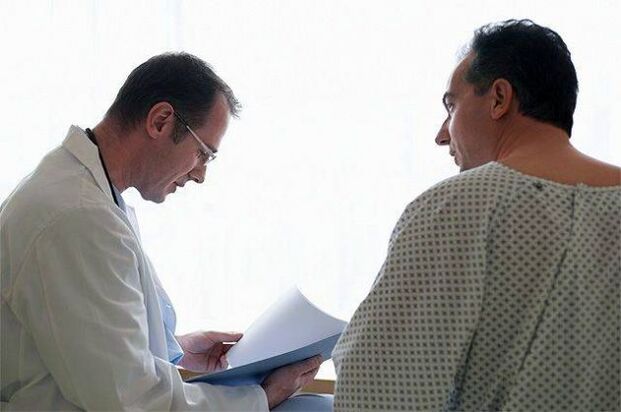
For the treatment of prostatitis can be used both medical treatment (pills, suppositories, injections), as well as non-narcotic treatment (massage, physiotherapy). On sale are at least 150 different medicines that, according to the manufacturer, promote inflammation of the prostate gland. Patients planning successful treatment require prior consultation with a urologist.
Before using any composition you should know everything about it: what the drug contains, what is its pharmacological effect, what are the indications and contraindications. It is also helpful to learn from the experiences of people who have already undergone treatment and feedback from recovering patients.
What is the difference between drug release forms
With inflammation of the prostate gland, the greatest danger is that the abnormal microflora will continue to travel through the male reproductive system. Without proper treatment the patient receives:
- Epididymitis;
- Balanoposthitis;
- Urethritis;
- Cystitis;
- Pyelonephritis.
Without tests it is impossible to determine what kind of cause of prostatitis. Treatment should be based on the etiology of the disease, only then will it be effective.
The main causes of prostatitis and methods of therapy:
- Stagnation in prostate tissues. Mild anti-inflammatory drugs are prescribed, the use of antibiotics is not advisable. Stimulating the work of the prostate nourishing blood and lymphatic vessels gives a good effect.
- Bacterial infection. This is the most dangerous of all possible variants of the disease. Strong antibiotics are needed, otherwise the inflammatory process will spread to the urinary system and cover the urethra, bladder and kidneys. As the infection progresses in the reproductive system, the testicles and the body of the penis will be affected. In the future there will be impotence, acute infectious prostatitis and acute pyelonephritis. On an outpatient basis, the patient uses antibacterial agents and immunomodulators, while in the hospital setting, a strong course of immunostimulants and antibiotics directed against specific pathogens. Treatment is carried out under the control of tests.
- ᲕViral infection. Rare, requires immune system support. Medicine can not offer any specific measures other than taking nonsteroidal anti-inflammatory drugs.
- Malignant and benign tumors, prostate hyperplasia. In this case, in addition to medication, the help of a surgeon may be needed. After elimination of the diffuse or nodular pathological process, the prostate condition normalizes.
According to the form of release, the following types of prostatitis drugs are distinguished:
- Injections. They are used in the hospital, in severe cases they help to quickly stop the inflammatory process in the prostate tissues.
- Instillations. This term refers to the introduction of a drug into the prostate gland through the urethral lumen. This procedure is usually performed by a urologist. Approximately 5 ml of the drug is injected by volume.
- Candles. The most common method of treatment at home, a very convenient and popular form of release. All types of prostatitis medications are produced in suppositories: analgesic, antiseptic, vasodilator, antibacterial, immunostimulatory and others. The course of use of suppositories should be from 5 to 21 days, after the end of therapy the patient should undergo a control urine test.
- Tablets. In some cases, it is advisable to use oral remedies that have a systemic effect. This form of release has unconditional advantages: against the background of infection of the genitourinary system during prostatitis, several foci of the pathological process can be destroyed simultaneously.
- Microclysters. Classic treatment. It involves affecting the prostate gland through the wall of the rectum. This is a very safe and convenient method, the only drawback of which is the pre-emptying of the intestines. Therapeutic enemas differ from the usual composition and low dosage.
- Ointments. They are relatively rarely used to treat prostatitis due to their uncomfortable use on the perineum.
At the same time, you can use different forms of drug release, for example, tablets and suppositories. When choosing a treatment strategy should be guided by the recommendations of the attending physician.
Attention! Control tests should be performed no earlier than 2 weeks after the end of the last use of the drug. Patients treated without the system have a higher risk of chronic prostatitis and impotence.
The most popular and inexpensive medications
The prices of different groups of medicines vary considerably, it is also important to consider the place of purchase of the medicine. In large pharmacy chains and online pharmacies it is always cheaper than in smaller and lesser known pharmacies.
Fact! The doctor does not prescribe the specific name of the drug, it indicates the active ingredient. The doctor prescribes the pharmacist. It is profitable for this specialist to sell expensive medicine, so the patient should ask about cheap analogues.
Separately, it is worth noting a class of prostatitis medications such as alpha blockers. Medications affect the hormonal processes that take place in the male reproductive system and help to eliminate the preconditions for inflammation and swelling of the prostate gland. Because medications prevent the chemical reactions that testosterone is involved in, it is important to see an andrologist before using them.
Attention! There are a number of products that reduce the effectiveness of alpha blockers.
Diet is a mandatory part of treatment, otherwise the result will be disappointing.
What do people say?

Patients who have been treated under the control of analgesics and have consulted their doctor regularly find that inexpensive medications for prostatitis are no less effective than their expensive counterparts.
Male, 39 years old
Friends advised the well-known composition of prostatitis. Very praised, they said, it gives an amazing effect, but for some reason it did not help me. The result is not at all. Maybe it's time to go to a normal urologist? Stop talking to friends.




























